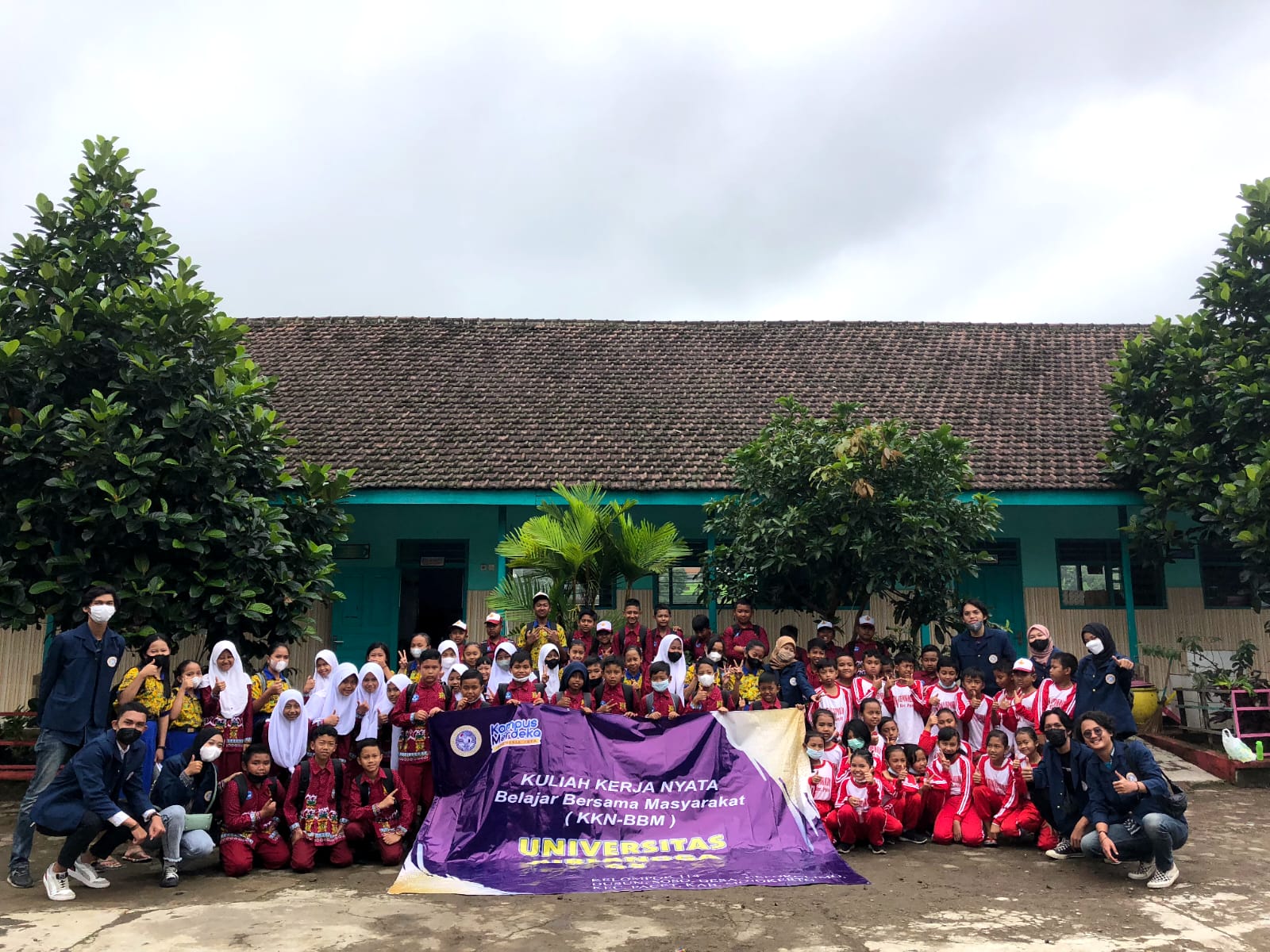UNAIR NEWS – Community Service Program – Learning with Community (KKN-BBM) Universitas Airlangga is one of the activities that apply the principles of Higher Education Tri Dharma, education and teaching, research and development, and community service. The output of this activity required the students to complement each other with their respective knowledge and expertise. Therefore, several efforts were made to form groups from various faculties, to realize optimal implementation goals and benefits for the community.
In this regard, 65th KKN BBM Group 114 consists of 10 students from several different faculties, Faculty of Law, Faculty of Science & Technology, and Faculty of Fisheries & Marine Sciences. Fatur Rahman Al’safa as the managing leader of KKN, said his group carried out community services in Soso Hamlet, Cepoko Limo Village, Pacet Subdistrict, Mojokerto Regency, East Java. The activity is focused on handling the village’s problems, including waste problems.
Cepoko Limo Village Chief, Mahfud Sulaiman M.Pd said villagers lack education about processing garbage scattered in the village. So far, residents only burn and dispose of their garbage in the river as environmental cleanup. However, he continued, their action continues to pollute air and river in the village.
“We hope that the students will be able to solve this problem with their KKN program held in Cepoko Limo village,” he hoped.
Therefore, Group 114 took the initiative to implement a program in the environmental field by creating a garbage bank for the residents of Cepoko Limo Village. The schedule began with providing counseling to villagers, which is continued by community mobilization to collect garbages around their homes and neighborhoods.
“Furthermore, together, we sort out waste that can be recycled, so that from the process will be created items that citizens can utilize,” Fatur explained to UNAIR NEWS on February 8.
Furthermore, continued Fatur, Group 114 held several programs closely related to additional problems in the village, including in the field of education. Based on a survey conducted long before the implementation of KKN, the children of Cepoko Limo Village rarely read books; their focus was only on gadgets. Therefore, the book corner is a program to address the existing problems.
“At least this program can shift their focus from gadgets to diligent reading,” he said.
Fatur added that there are several programs in the field of health and economy in addition to these programs. Both of these fields are complementary to the main programs located in previous areas.
“We have education about the use of e-commerce and masks distribution for free,” he mentioned.
Both programs followed the needs of the community. Some residents have products to sell, but it isn’t easy to market them. “Therefore, this program is implemented as a market expansion of products owned by citizens,” he added.
The mask distribution was felt necessary because of the lack of residents obeying the health protocols since the KKN team made initial observations to the village. So with this program, people will think twice for not putting on masks, Fatur concluded.
Author: Azka Fauziya
Editor: Nuri Hermawan





